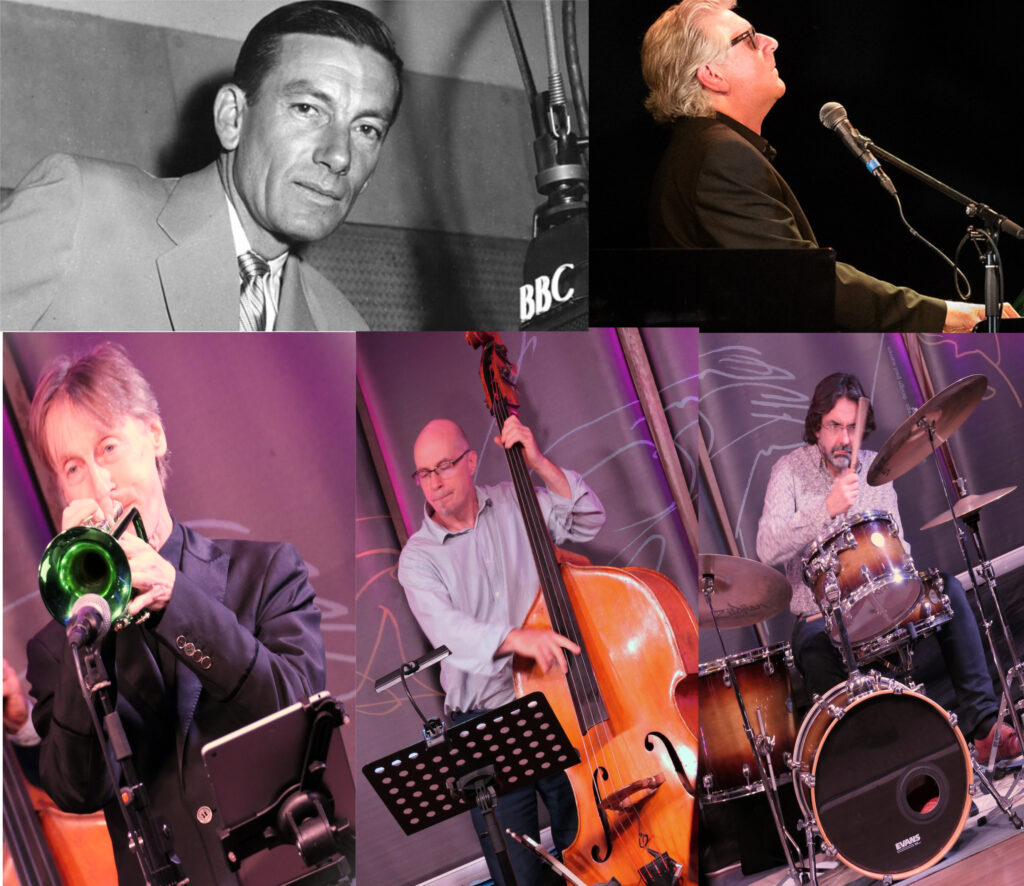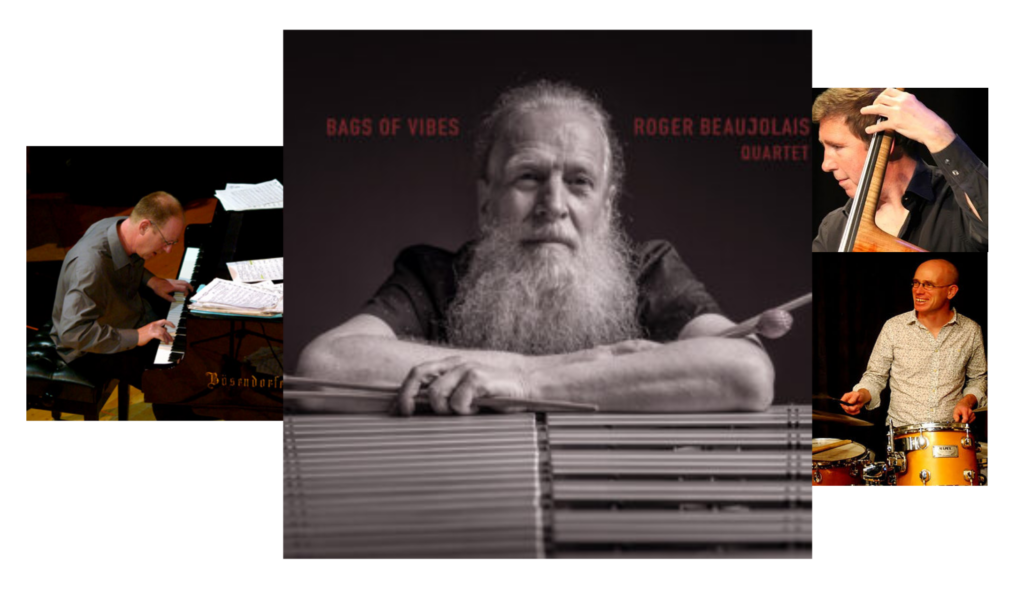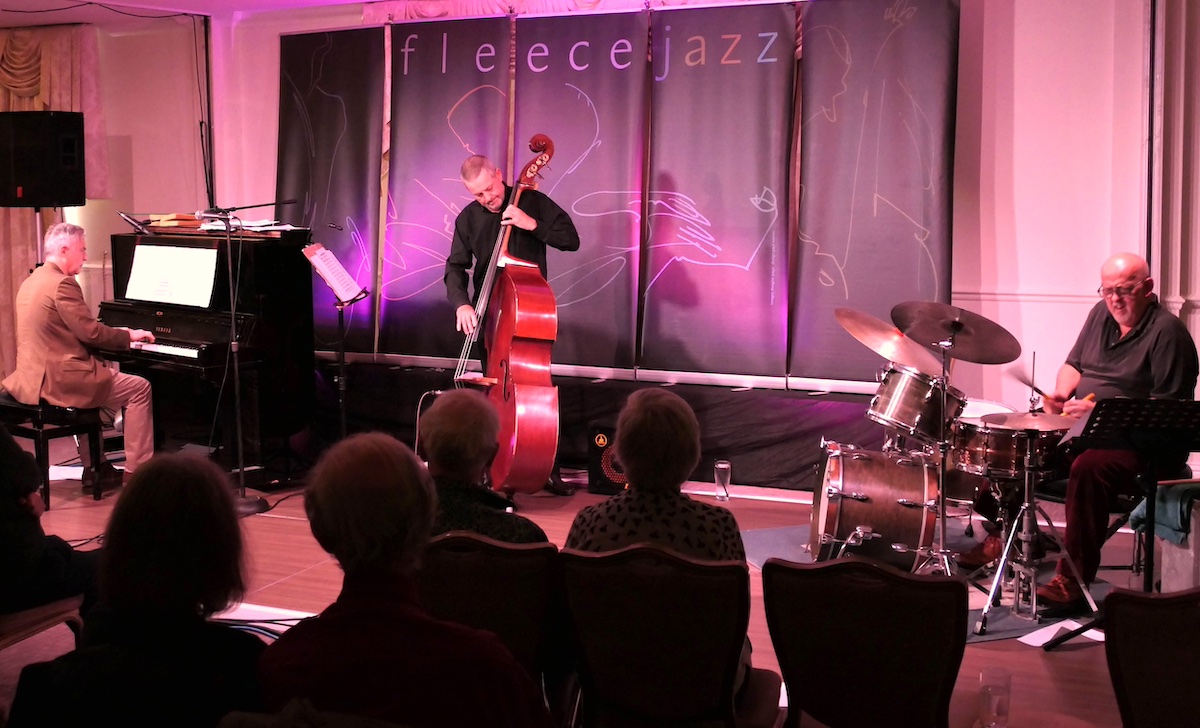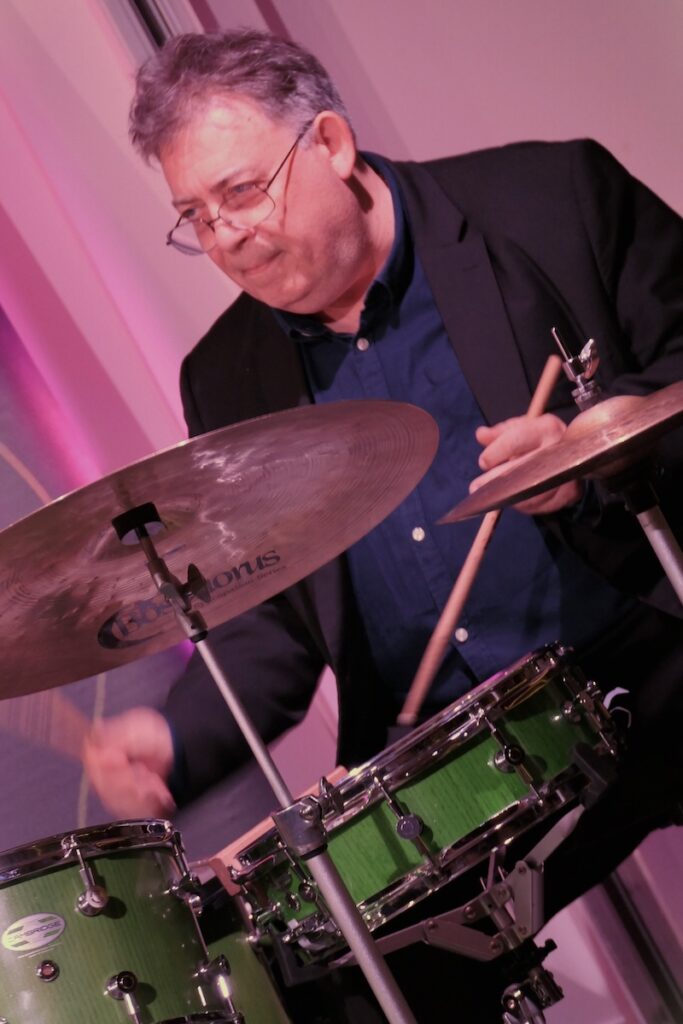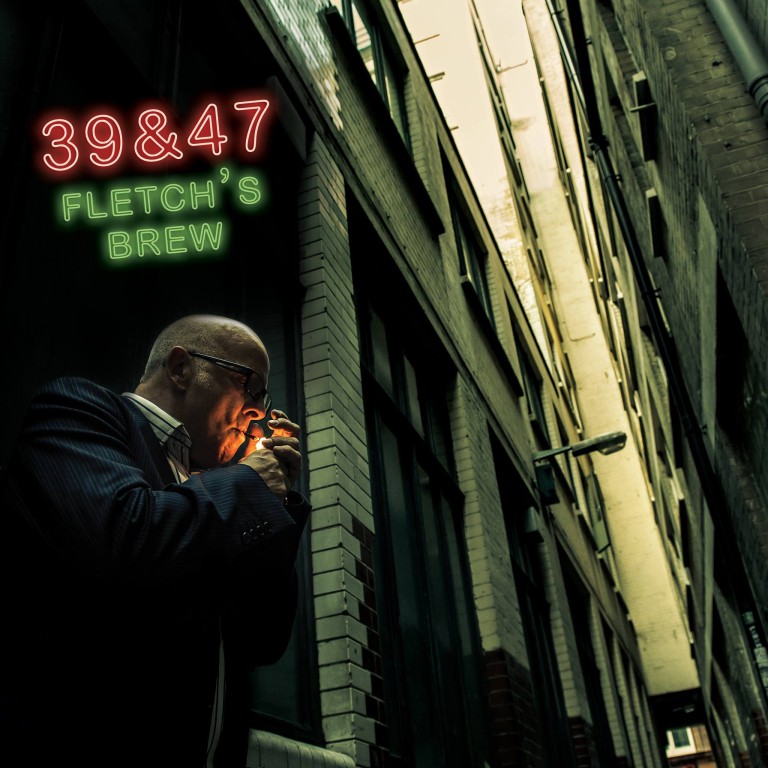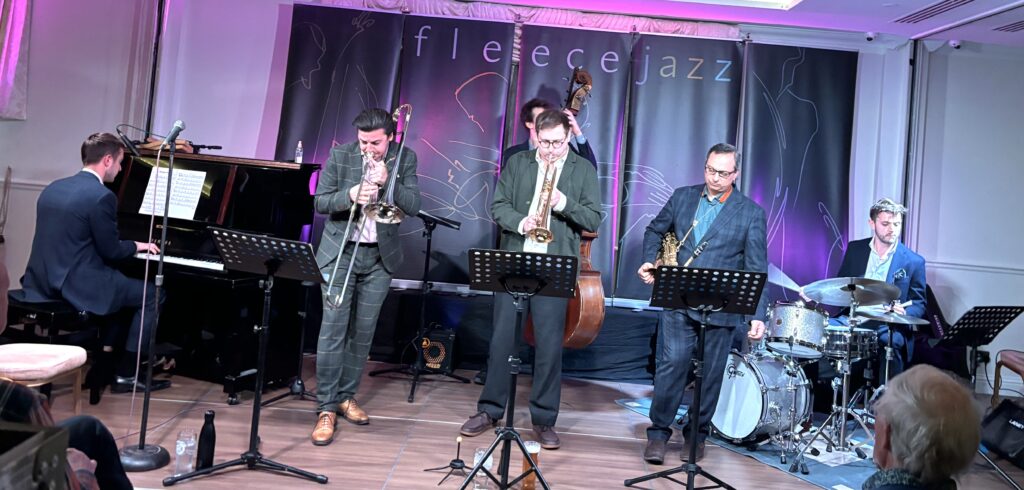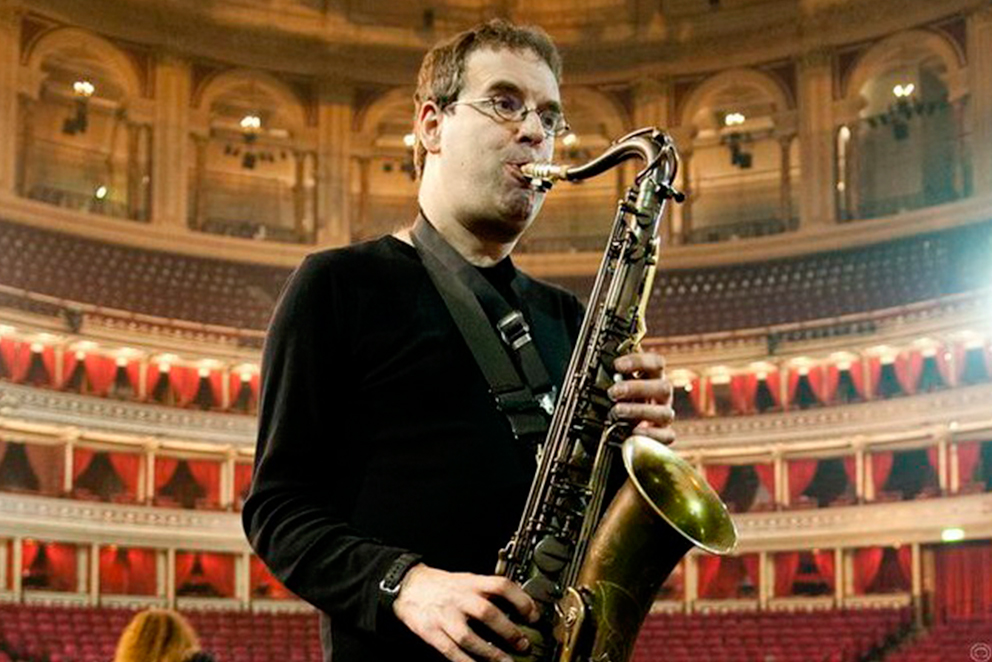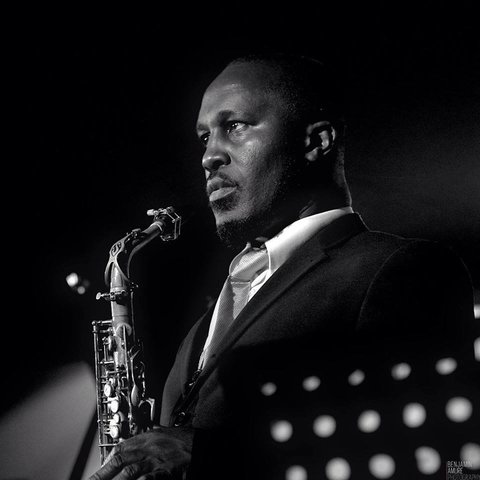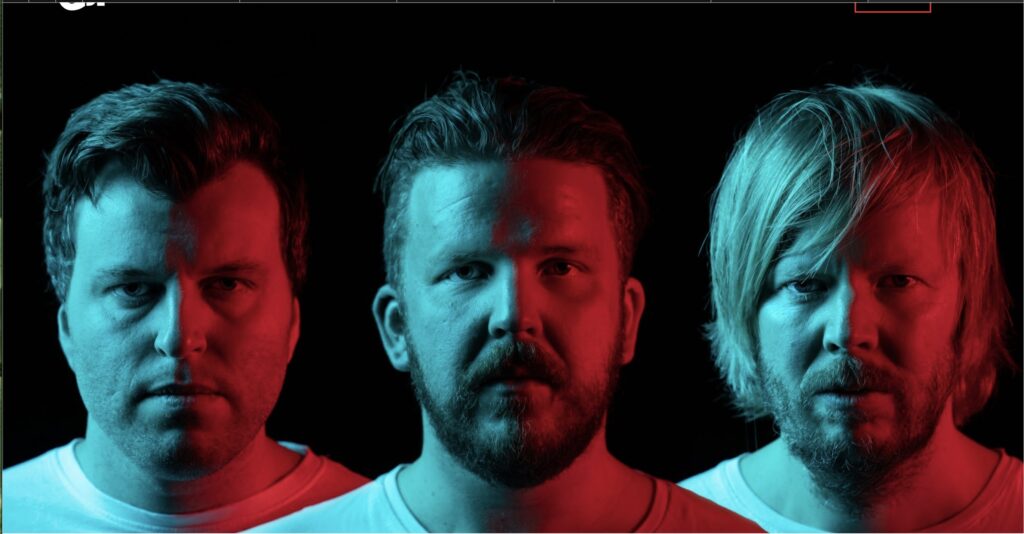Vasilis Xenopoulos Saxophones
Paul Edis Piano
Simon Read Bass
Billy Pod Drums
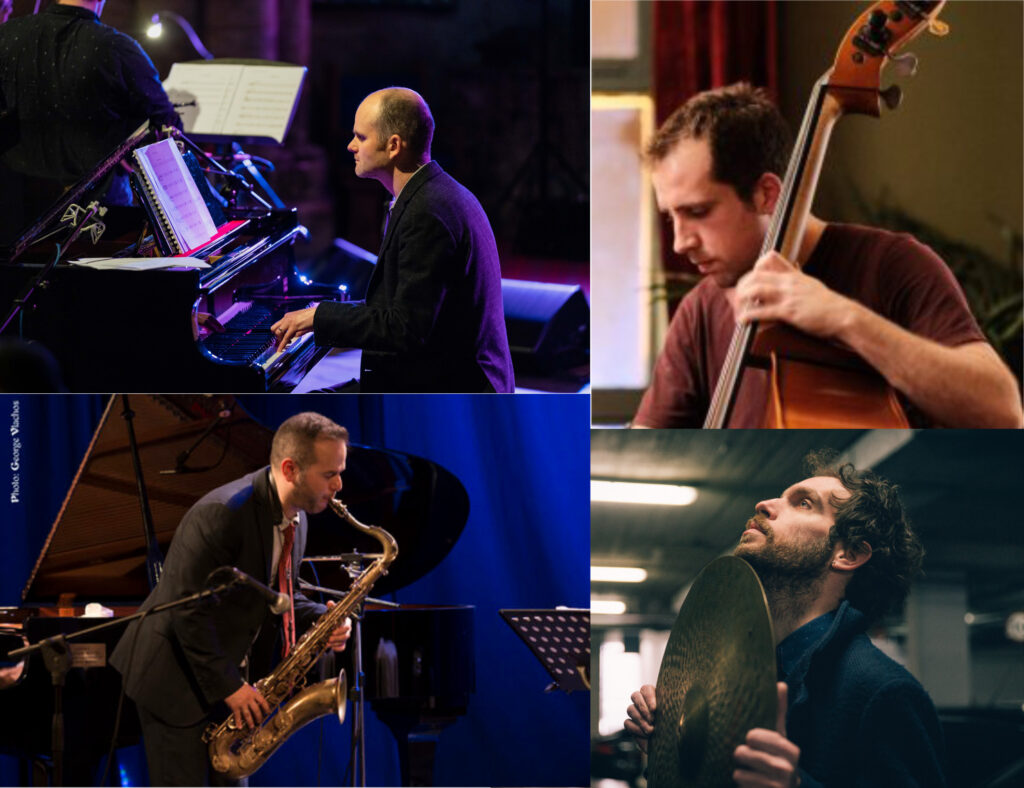
“. . . the quartet’s compatibility and their ease in performance is a delight.” Peter Vacher, Jazzwise
Vasilis Xenopoulos and Paul Edis began playing together 20 years ago, when they had both relocated to West London to study. Originally from Greece, Vasilis had just finished studying at Berklee College in the US, whilst Paul had moved South from the Northeast of England. In the intervening years they’ve played numerous gigs together, releasing their first album in 2016, to critical acclaim. Their latest recording features original music inspired by the theme of ‘home’. “Rooted in the jazz tradition, this is music that’s eclectic, groove-based and fundamentally melodic. Including elements of hard bop, Latin jazz, gospel and even folk, there are nods to Dexter Gordon, Stanley Turrentine, John Coltrane, Antonio Carlos Jobim, Bill Evans, Brad Mehldau, McCoy Tyner and more besides.”
Paul Edis, whom Jazz Journal described as “a major voice in British Jazz, an incredibly fertile composer and improviser” is one of the leading creative musicians in the UK today. As a performer, composer and educator, he has built a reputation for consistently delivering new and original ideas, seeking to innovate within his work whilst always paying respect to both the Jazz and Classical music traditions. As well as collaborating with Vasilis Xenopoulos for 20 years, he has performed alongside other leading jazz names including Jo Harrop, Jon Faddis, Alan Barnes, Bruce Adams, Nigel Price, Jim Mullen, Tim Garland, Julian Siegel, Tony Kofi, Steve Waterman, Iain Ballamy and Mark Nightingale.
Vasilis Xenopoulos has made a significant reputation for himself on the international jazz scene, forming partnerships that have stood the test of time. He places himself firmly in the ‘straight-ahead’ stylistic category and has never concealed his admiration for Dexter Gordon and Hank Mobley, this showing every time he plays.
“Vasilis Xenopoulos… one of the most fiery, young saxophonists around blazes a path through the hard bop repertoire”(The Times) ★★★★
